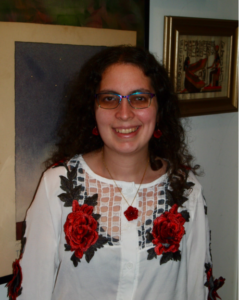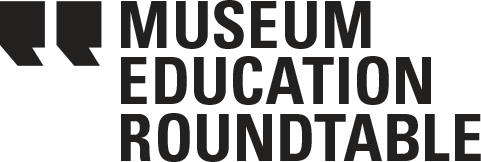Meeting the Directors: Alexandra Morris
As we begin 2023, MER would like to spend some time celebrating the wonderful people that we have the opportunity to work with. We asked each director to answer a series of questions to allow us to get to know them better.

Alexandra F. Morris (she/her) is an Egyptologist and disability activist. She recently was awarded her PhD in history from Teesside University, and her research interests include disability in the ancient world, ancient Egyptian and Greek art, medicine, and religious practices, Ptolemaic Egypt, Alexander the Great, and creating more accessible and inclusive museums for the disabled community. Alexandra is also a published author with focuses on disability in the ancient world, Egyptology, and Alexander the Great. She holds an MA in Museum Studies from New York University and an MA in Near Eastern Languages & Civilisations (Egyptology) from the University of Pennsylvania. Her BA is in Archaeological Studies, Anthropology, and Art History with minors in Classics and history from SUNY Potsdam. Alexandra is also the Co-Founder of the UK Disability History and Heritage Hub, Co-Chair of CripAntiquity, serves on the Editorial Board for Asterion Hub, is a mentor for Disabled in Higher Ed, and is Chair of the Lewisboro, NY Advisory Committee for the Disabled. She has cerebral palsy and dyspraxia. She has been a board member since 2021 and is currently one of the Co-Chairs of the Communications Team.
What made you want to join MER?
I joined MER initially as a way to keep me connected to both the larger museum field, and as a way to keep connected to my home country as I was completing my PhD in history (disability in ancient Egypt) internationally in a foreign country. I had first encountered the journal during my Museum Studies MA, as it was utilised in my classes as assigned reading, and I found the scholarship in it incredibly engaging.
What are your dreams/ goals for the organization during your tenure?
I would like to see this organisation continue to focus on innovative ideas, and marginalised/overlooked aspects of the museum education field, including disability justice. I would also like it to continue to lead in accessibility, and hopefully help move the field away from the so-called “therapy”[1] or medical understanding and approach to disability. Additionally, I want to help MER to continue to grow internationally.
How does MER align with your personal and/ or professional work?
MER aligns with my work because I have tried to remain connected to the museum field throughout my academic career. I see so much potential for museum education, and how museums can address topics like disability and other marginalised histories and narratives in their spaces, and believe that it is only by continuing to forge connections with different communities and learning from each other that will allow change to happen.
How do you relax and recharge after a long day?
This depends upon what my day looked like: some days it looks like having a hot bath and curling up with a good book or TV show and not interacting with anyone, or cooking a good meal, other days it means connecting and having a chat with friends or family.
Who is someone you look up to?
I look up to a lot of different people I’ve encountered throughout my academic and professional journey ranging from academics, to fellow members of the disabled community, to museum professionals, so many that it seems unfair to try and single any one person out. Some mentors I’d like to mention who are connected to the museum world include Dan Rahimi and Glenn Wharton. Dan, for going into what was quite frankly some place that needed a redesign, and seeing the potential the place had, and both Dan and Glenn for encouraging me to stretch my own thinking, and pursue my research into disability in an ancient world context, and believing that I had potential at a time when I needed it.
[1] See “Against the Therapeutic Museum” by Lauren Poole, GLAM: Art, Culture, News, Reviews, March 19, 2022,
https://www.glamatsydney.org/post/against-the-therapeutic-museum
Dr. Morris was also recently published in the Pediatric Stroke Journal. You can read about her analysis of how cerebral palsy appeared in Ancient Egyptian art here: https://pediatricstrokejournal.com/cerebral-palsy-in-ancient-egypt/

